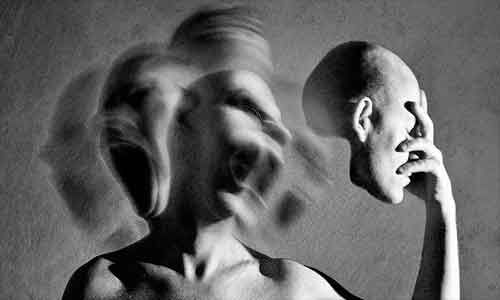- Home
- Medical news & Guidelines
- Anesthesiology
- Cardiology and CTVS
- Critical Care
- Dentistry
- Dermatology
- Diabetes and Endocrinology
- ENT
- Gastroenterology
- Medicine
- Nephrology
- Neurology
- Obstretics-Gynaecology
- Oncology
- Ophthalmology
- Orthopaedics
- Pediatrics-Neonatology
- Psychiatry
- Pulmonology
- Radiology
- Surgery
- Urology
- Laboratory Medicine
- Diet
- Nursing
- Paramedical
- Physiotherapy
- Health news
- Fact Check
- Bone Health Fact Check
- Brain Health Fact Check
- Cancer Related Fact Check
- Child Care Fact Check
- Dental and oral health fact check
- Diabetes and metabolic health fact check
- Diet and Nutrition Fact Check
- Eye and ENT Care Fact Check
- Fitness fact check
- Gut health fact check
- Heart health fact check
- Kidney health fact check
- Medical education fact check
- Men's health fact check
- Respiratory fact check
- Skin and hair care fact check
- Vaccine and Immunization fact check
- Women's health fact check
- AYUSH
- State News
- Andaman and Nicobar Islands
- Andhra Pradesh
- Arunachal Pradesh
- Assam
- Bihar
- Chandigarh
- Chattisgarh
- Dadra and Nagar Haveli
- Daman and Diu
- Delhi
- Goa
- Gujarat
- Haryana
- Himachal Pradesh
- Jammu & Kashmir
- Jharkhand
- Karnataka
- Kerala
- Ladakh
- Lakshadweep
- Madhya Pradesh
- Maharashtra
- Manipur
- Meghalaya
- Mizoram
- Nagaland
- Odisha
- Puducherry
- Punjab
- Rajasthan
- Sikkim
- Tamil Nadu
- Telangana
- Tripura
- Uttar Pradesh
- Uttrakhand
- West Bengal
- Medical Education
- Industry
Deep brain stimulation shows promise in resistant schizophrenia: Lancet

Barcelona, Spain: Deep brain stimulation (DBS) may be an effective therapeutic option for schizophrenia patients who do not respond to any other treatment, suggests a recent study. The findings of the study were presented at the 33rd European College of Neuropsychopharmacology (ECNP) Congress held from September 12-15, 2020 in Vienna, Austria, and subsequently published in Lancet journal EBioMedicine.
Schizophrenia, a severe and disabling mental disorder, affects about 1% of the population globally. Around 20–30% of the patients are resistant to conventional antipsychotic drug treatment. And about 60% of such patients also fail to respond to the most effective of the second-generation or atypical antipsychotics, clozapine. Deep brain stimulation (DBS) has been as a well-established treatment for Parkinson's disease and other movement disorders. In recent years, DBS use has been extended to treatment-resistant patients with other psychiatric disorders. However, there us a lack of data suggesting the role of DBS in schizophrenia treatment.
The study by Iluminada Corripio, Hospital de la Santa Creu i Sant Pau, Barcelona, Spain, and colleagues examined the effectiveness of nucleus accumbens (NAcc) and subgenual anterior cingulate cortex (subgenual ACC) targeted DBS.
It included 8 patients with schizophrenia who met the criteria for treatment resistance and were also resistant to/intolerant of clozapine. They were randomly assigned to receive DBS in the NAcc or subgenual ACC using central allocation.
An open stabilization phase lasting at least six months was followed by a randomized double-blind crossover phase lasting 24 weeks in those who met symptomatic improvement criteria.
The primary end-point was a 25% improvement in PANSS total score as assessed fortnightly.
Key findings of the study include:
- One implanted patient did not receive DBS due to complications of surgery.
- Of the remaining 7 patients, 2/3 with NAcc and 2/4 with subgenual ACC electrode placements met the symptomatic improvement criteria (58% and 86%, and 37% and 68% improvement in PANSS total score, respectively).
- Three of these patients entered the crossover phase and all showed worsening when the stimulation was discontinued.
- The fourth patient worsened after the current was switched off accidentally without her or the investigators' knowledge.
- Physical adverse events were uncommon, but two patients developed persistent psychiatric adverse effects (negative symptoms/apathy and mood instability, respectively).
These preliminary findings suggest the possibility of DBS having therapeutic effects in treatment-resistant schizophrenic patients.
"Larger trials with careful attention to blinding will be necessary to establish the extent of the benefits and whether these can be achieved without psychiatric side-effects," concluded the authors.
The study, "Deep brain stimulation in treatment resistant schizophrenia: A pilot randomized cross-over clinical trial," is published in the journal EBioMedicine.
DOI: https://www.thelancet.com/journals/ebiom/article/PIIS2352-3964(19)30778-9/fulltext
Dr Kamal Kant Kohli-MBBS, DTCD- a chest specialist with more than 30 years of practice and a flair for writing clinical articles, Dr Kamal Kant Kohli joined Medical Dialogues as a Chief Editor of Medical News. Besides writing articles, as an editor, he proofreads and verifies all the medical content published on Medical Dialogues including those coming from journals, studies,medical conferences,guidelines etc. Email: drkohli@medicaldialogues.in. Contact no. 011-43720751


